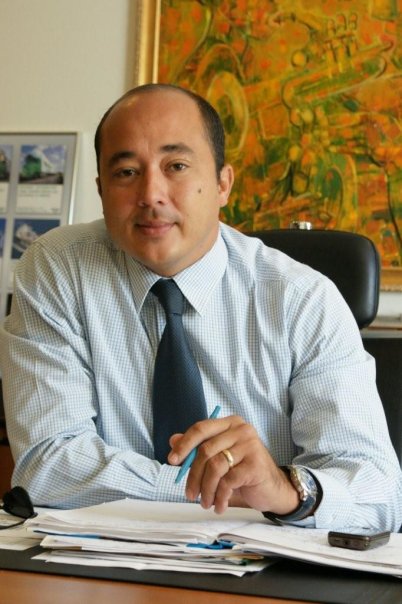Mark Mingo acquitted of all charges

PHILIPSBURG — The Common Court of Justice acquitted Mark Mingo, the former Chief Executive Officer of the Harbor Group of Companies of all charges on Tuesday, June 21, 2022. More than two years ago, on January 29, 2020, the Court in First Instance sentenced Mingo to 46 months in prison and a 6-year ban on holding a management position at any government-owned company.
Two other defendants in the so-called Emerald-case, Checkmate director O’Neal Arrindell and former parliamentarian Frans Richardson did not escape justice. The court sentenced Arrindell to 40 months of imprisonment for fraud and firearm possession. Richardson received a 20-month sentence for taking bribes and for tax fraud.
Mingo was accused of forging 272 invoices from seven different construction companies for work that these companies had not, or not completely, done. The prosecution alleged that he used these invoices to defraud the port for $6.8 million and that he defrauded the port for another $3 million by charging it for mobilization costs for a company called Devcon while in reality these were payments to Arrindell.
The ruling describes how the prosecution considered proven that Arrindell had set up a mock construction by creating fake invoices and by submitting them to the port for payment. None of these invoices was ever above $27,700; above that amount payment required permission from the supervisory board of directors.
The prosecution also established that the owners of all seven construction companies maintained a friendly relationship with Arrindell or that there was a family-connection.
Main contractors at the port told the prosecution that invoicing by the small construction companies is unusual. Normally, sub-contractors invoice the main contractor they work for and this contractor invoices the port.
The three judges of the Common Court note in their ruling that the prosecution did not examine each of the 272 invoices. Instead, it randomly selected some of these invoices and when a main contractor indicated not to know the company or that it could not explain the work mentioned on the invoice, the prosecution considered this proof for the existence of the mock construction and therefore concluded that all 272 invoices are forgeries.
Mingo’s attorney Cor Merx told the court that there is no evidence that the 272 invoices are forgeries, saying that there are statements in the dossier supporting that certain work was done by the construction companies.
The judges furthermore considered the meaning of notes Mingo had made on several of the invoices such as ‘to be discussed’ and ‘not agreed.’ “These notes are imperative indications that work was done.” The court also mentions the motivated argument of attorney Merx against the position of the public prosecutor. “Already for this reason it cannot be concluded that all 272 invoices are forgeries. For proof it is necessary to establish for each separate invoice that it is a forgery.”
The court acquitted Mingo of all these charges. It also found no evidence that Mingo had intentionally contributed to a scheme whereby Arrindell and Devcon charged the port for money Devcon had paid in fact to Arrindell.
The judges state that it is nevertheless remarkable that Mingo agreed with Devcon-charge for mobilization costs and general condition costs while these costs were already included in the June 17, 2012, dredging contract. “Mingo did not pose questions about the price either and he went along with a high amount for mobilization costs while Devcon was already established in Simpson Bay. There are question marks about the level of carefulness Mingo exercised in studying contracts but this does not prove that he knew that the mobilization cost and the general condition costs were in fact amounts Devcon had paid to Arrindell.”
###
Related articles:
Mark Mingo: “I have done nothing wrong”























